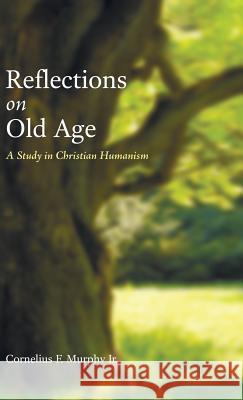Reflections on Old Age » książka
Reflections on Old Age
ISBN-13: 9781498218870 / Angielski / Twarda / 2015 / 140 str.
Reflections on Old Age
ISBN-13: 9781498218870 / Angielski / Twarda / 2015 / 140 str.
(netto: 140,01 VAT: 5%)
Najniższa cena z 30 dni: 146,19
ok. 16-18 dni roboczych.
Darmowa dostawa!
The English writer E. M. Forster described old age as ""a seductive combination of increased wisdom and decaying powers to which too little intelligence is devoted."" This book is a response to that criticism. It explains how old age has been considered throughout the ages by philosophers, poets, and other literary figures, and explores how the extraordinary increase of life expectancy that began in the last century has be sustained by science and medicine. Unfortunately the general public still prefers to keep the elderly out of sight and, especially, out of mind. To overcome this marginalization I call for the emergence of a more inclusive humanism--one that is welcoming to persons of all ages. To overcome the pervasive isolation of the elderly requires a new dialogue across all the living generations. Echoing the sentiments of Cicero in his classic study of old age, I also call for a reflective maturity to develop among the elderly, one that reaches deeply into themselves and increases their understanding of the world around them. Spiritual maturity demands growth in virtue and charity in the advance of years. A reaching out to all in the pursuit of justice and the common good is strongly recommended. The book concludes with some reflections upon hopes for personal immortality as well as the qualities of divine justice and mercy. ""Cornelius Murphy writes about a traditional philosophical topic--old age--with honesty, clarity, and vigor. He discusses the most important ancient theories, exploring their moral and political significance and then draws his conclusions with regard to the modern times. We live longer now, but is our old age better, more valuable, and productive than it used to be? How could we live better all the way to the end? Murphy gives his carefully weighted conclusions from an enlightened Christian perspective."" --Timo Airaksinen, Professor of Philosophy, University of Helsinki Cornelius F. Murphy Jr. taught international law and legal philosophy at Duquesne University and has also lectured in Spain and China. He is the author of a wide range of books and articles, including Beyond Feminism, Toward A Dialogue on Difference (1995), Theories of World Governance (1999), and Person And Society in American Thought (2007).
The English writer E. M. Forster described old age as ""a seductive combination of increased wisdom and decaying powers to which too little intelligence is devoted."" This book is a response to that criticism. It explains how old age has been considered throughout the ages by philosophers, poets, and other literary figures, and explores how the extraordinary increase of life expectancy that began in the last century has be sustained by science and medicine. Unfortunately the general public still prefers to keep the elderly out of sight and, especially, out of mind. To overcome this marginalization I call for the emergence of a more inclusive humanism--one that is welcoming to persons of all ages. To overcome the pervasive isolation of the elderly requires a new dialogue across all the living generations. Echoing the sentiments of Cicero in his classic study of old age, I also call for a reflective maturity to develop among the elderly, one that reaches deeply into themselves and increases their understanding of the world around them. Spiritual maturity demands growth in virtue and charity in the advance of years. A reaching out to all in the pursuit of justice and the common good is strongly recommended. The book concludes with some reflections upon hopes for personal immortality as well as the qualities of divine justice and mercy.""Cornelius Murphy writes about a traditional philosophical topic--old age--with honesty, clarity, and vigor. He discusses the most important ancient theories, exploring their moral and political significance and then draws his conclusions with regard to the modern times. We live longer now, but is our old age better, more valuable, and productive than it used to be? How could we live better all the way to the end? Murphy gives his carefully weighted conclusions from an enlightened Christian perspective.""--Timo Airaksinen, Professor of Philosophy, University of HelsinkiCornelius F. Murphy Jr. taught international law and legal philosophy at Duquesne University and has also lectured in Spain and China. He is the author of a wide range of books and articles, including Beyond Feminism, Toward A Dialogue on Difference (1995), Theories of World Governance (1999), and Person And Society in American Thought (2007).











